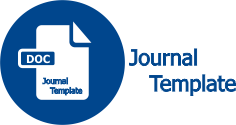Hubungan antara Efikasi dan Regulasi Diri dengan Motivasi dan Hasil Belajar Kimia Peserta Didik Kelas XI MIA SMAN 8 Gowa pada Materi Pokok Hidrokarbon
(1) Universitas Negeri Makassar
(2) Universitas Negeri Makassar
(3) Universitas Negeri Makassar
(4) Universitas Negeri Makassar
(*) Corresponding Author
DOI: https://doi.org/10.26858/cer.v7i2.62987
Abstract
Keywords
Full Text:
PDFReferences
Cazan, A.-M., & Schiopca, B.-A. (2014). Self-directed Learning, Personality Traits and Academic Achievement. Procedia - Social and Behavioral Sciences, 127, 640–644. https://doi.org/10.1016/j.sbspro.2014
Chairunnisa, W. O. C., Murtihapsari, M., & Larasati, C. N. (2021). Efikasi Diri dan Kemandirian Belajar terhadap Hasil Belajar Kognitif Peserta Didik di SMA. Jurnal Pendidikan Kimia Undiksha, 5(2), 75.
Diah Fitasari, N. P., Suniasih, N. W., & Sastra Agustika, G. N. (2019). Pengaruh Pola Asuh Orang Tua Terhdap Hasil Belajar Matematika dengan Efikasi Diri Sebagai Intervening. International Journal of Elementary Education, 3(4), 404.
Giles, G. E., Horner, C. A., Anderson, E., Elliott, G. M., & Brunyé, T. T. (2020). When Anger Motivates: Approach States Selectively Influence Running Performance. Frontiers in Psychology, 11, 1663.
Gillebaart, M. (2018). The ‘Operational’ Definition of Self-Control. Frontiers in Psychology, 9, 1231.
Hasmatang, H. (2019). The Importance of Self Efficacy in Student’s Self. Seminar Nasional Biologi Dan Pembelajarannya, 296–298.
In’am, A., Sutrisno, E. S., & University of Muhammadiyah Malang Indonesia, [email protected]. (2021). Strengthening Students’ Self-efficacy and Motivation in Learning Mathematics through the Cooperative Learning Model. International Journal of Instruction, 14(1), 395–410.
Lumbantobing, P. A. (2020). The Contribution of Lecturer Pedagogical Competence, Intellectual Intelligence and Self-Efficacy of Student Learning Motivation. Budapest International Research and Critics in Linguistics and Education (BirLE) Journal, 3(1), 564–573.
Mustofa, R. F., Nabiila, A., & Suharsono, S. (2019). Correlation of Learning Motivation with Self Regulated Learning at SMA Negeri 1 Tasikmalaya City. International Journal for Educational and Vocational Studies, 1(6).
Parnawi, A. (2021). Psikologi Perkembangan. Deepublish.
Pratiwi, D., Suendarti, M., & Hasbullah, H. (2019). Pengaruh Efikasi Diri dan Kemandirian Belajar terhadap Kemampuan Pemecahan Masalah Matematika. JKPM (Jurnal Kajian Pendidikan Matematika), 5(1), 1.
Putrie, C. A. R. (2021). Pengaruh Regulasi Diri Siswa terhadap Prestasi Belajar Siswa Kelas VIII pada Mata Pelajaran IPS. Research and Development Journal of Education, 7(1), 136.
Rheinberg, F., Vollmeyer, R., & Burns, B. D. (2000). Motivation and Self-Regulated Learning. In Advances in Psychology (Vol. 131, pp. 81–108). Elsevier.
Roebianto, A. (2020). The Effects of Student’s Attitudes and Self-Efficacy on Science Achievement. Jurnal Pengukuran Psikologi Dan Pendidikan Indonesia (JP3I), 9(1), 1–10.
Santrock, J. W. (2004). Psikologi Pendidikan (Kedua). Kencana.
Sari, E. V., & Sumilah, S. (2020). Relationship of Metacognitive Awareness and Self Efficacy to Mathematics Learning Outcomes. Elementary School Teacher, 3(2).
Simaremare, A. P. R. (2019). Self-Regulated Learning in Correlation to Learning Outcome of Computer-Based Test Preparation of Medical Students. Jurnal Pendidikan Kedokteran Indonesia: The Indonesian Journal of Medical Education, 8(3), 136.
Spratt, E. G., Friedenberg, S., LaRosa, A., Bellis, M. D. D., Macias, M. M., Summer, A. P., Hulsey, T. C., Runyan, D. K., & Brady, K. T. (2012). The Effects of Early Neglect on Cognitive, Language, and Behavioral Functioning in Childhood. Psychology, 03(02), 175–182.
Suryani, L., Pendi, A., & B. Seto, S. (2020). Pengaruh Efikasi Diri Dan Kemandirian Belajar Terhadap Hasil Belajar Mata Kuliah Geometri Dasar Pada Mahasiswa Program Studi Pendidikan Matematika Universitas Flores. AKSIOMA : Jurnal Matematika Dan Pendidikan Matematika, 11(1), 17–26.
Sutrisno, A. B., & Yusri, A. Y. (2021). Pengaruh Efikasi Diri, Konsep Diri, Aktivitas Belajar, Kemandirian Belajar Terhadap Hasil Belajar Matematika Mahasiswa. Indonesian Journal of Learning Education and Counseling, 3(2), 221–229.
Tarmizi, S. N. A., Ahmad, R., Sipon, S., Sawai, R. P., Mahyuddin, M. K., Tazzif, M. H., & Khan, A. (2019). The Self-Efficacy, Self-Regulation and Academic Motivation among Students. Indian Journal of Public Health Research & Development, 10(4), 1443.
Yulianto, A. (2019). Pengaruh Self-Efficacy Terhadap Hasil Belajar Ekonomi Siswa Jurnal PIPSI (Jurnal Pendidikan IPS Indonesia), 4(1), 8.
Article Metrics
Abstract view : 23 times | PDF view : 2 timesRefbacks
- There are currently no refbacks.
Jurnal dipublikasikan oleh: Program Studi Pendidikan Kimia
Program Pascasarjana Universitas Negeri Makassar
Alamat JL. Bonto Langkasa Gunung Sari Makassar, 90222
Kampus PPs UNM Makassar Gedung AD ruang 406 Lt 4, Indonesia.Phone 082393643737/085145825311/085242228678
CER UNM Indexed by:

Chemistry Education Review (CER) is licensed under a Creative Commons Attribution-NonCommercial 4.0 International License.










